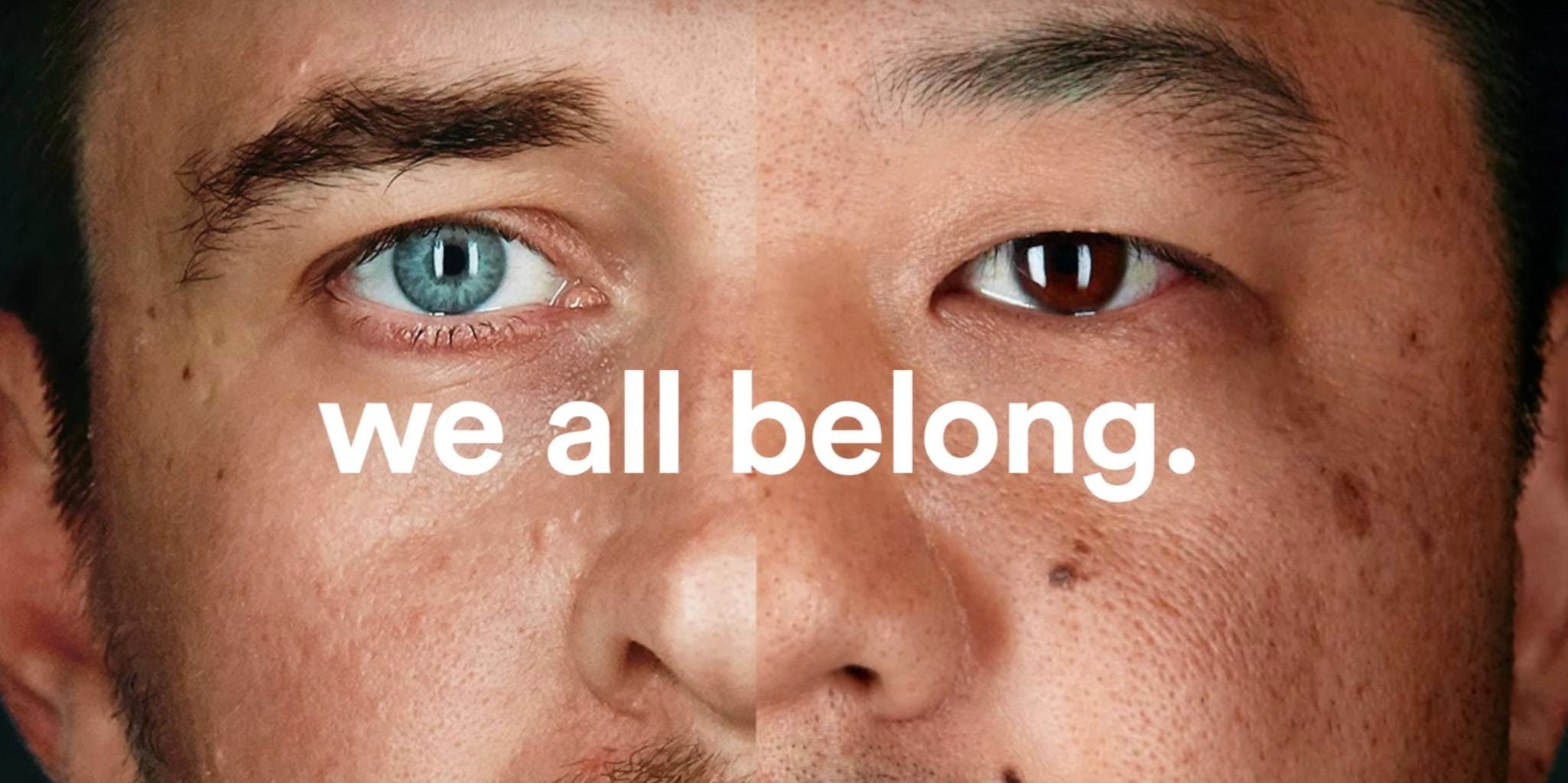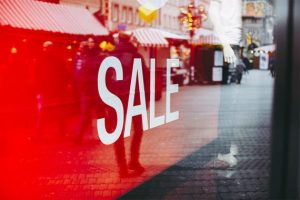
According to a study, the ad received a largely positive response, with consumers aged 16 to 49 perceiving it as more empowering than 98% of all other ads.
Pernod Ricard says companies “will be given the opportunity to earn an Anti-Hate Certification by calculating their “hate footprint” and investing in NGOs that are either fighting hate or support communities most impacted by hate to offset it.”
Pernod Ricard was one of the many companies to partake in the ‘Stop Hate For Profit’ campaign in July 2020 by pausing ad activity on Facebook. Since, the spirits company has continued its fight against hate speech and misinformation on social media platforms, most recently developing the #EngageResponsibly initiative in partnership with the Association of National Advertisers.
While this initiative is not in any way controversial, it’s still a good example of a brand putting social issues at the heart of its marketing. As well as benefiting a pressing and worthwhile cause, the campaign has also resulted in Stella Artois reaching a younger and more socially-aware audience.
Thrilled to be Carbon Negative.
Honoured to be working with @MikeBernersLee
And mega excited to create the BrewDog Forest.
Nike and ‘For Once, Just Don’t Do It’
Normalising periods is part of Bodyform’s brand purpose, but the brand also goes above and beyond to shine a light on wider issues that affect women’s health.
The ad, called “We Accept” showed a montage of people of different nationalities along with the words: “We believe no matter who you are, where you’re from, who you love or who you worship, we all belong. The world is more beautiful the more you accept.”
Just nine days after President Trump signed an order to temporarily close America’s borders to refugees in 2018, Airbnb aired an ad during the coveted Super Bowl spot in direct response to the decision.
Let’s all be part of the change.#UntilWeAllWin pic.twitter.com/guhAG48Wbp
The problem of hate speech is a deeply ingrained issue online, with many social media platforms coming under fire for taking insufficient action. Most recently, figures within English football have called on platforms to take action after a number of players have been subject to abuse online. Pernod Ricard’s initiative is further example that global brands are no longer willing to accept the spread of hate in digital environments, particularly as social media and the connection it affords plays an increasingly important part in consumers’ lives.
Econsultancy’s Trust & Transparency report
Bodyform and ‘Womb Stories’
Yesterday was the best day in BrewDog’s history.
In 2020, however, the beer brand took a more unwavering stand against environmental issues, with the announcement that it has become the first carbon-negative global beer business. As part of its efforts, it purchased 2,050 acres of land in the Scottish Highlands – known as ‘Brewdog Forest’ – where it plans to plant one million trees and restore 650 acres of peatland.
For every limited edition pack of bottles purchased, a month of clean water is provided to women and their families in developing countries. Meanwhile, a limited-edition pack from a supermarket provides six months’ worth of water.
In 2017 its ‘We See Equal’ campaign was designed to fight gender bias and work towards equality for all.
Kantar’s ‘2021 Media Trends and Predictions’ report offers a word of caution, however, as inauthenticity in this area can alienate consumers. As the report states, “the raison d’être of brands like Patagonia, Veja and The Beauty Counter is intrinsic, whereas campaigns from other companies might be perceived as opportunistic or insincere.”
With many brands following suit with campaigns similar in tone and style – and even rival adidas retweeting the message – it was largely considered one of the most authentic brand responses. Furthermore, events prompted Nike to look at issues within its own company. According to CNBC, Nike’s Chief Executive, John Donahoe, sent a letter to staff promising to increase diversity within the Nike workforce, and outlining plans to commit million to support black communities.
Tommy Hilfiger and ‘Moving Forward Together’
3/ We are donating ,000,000 over the next four years to the ACLU to defend our constitution. https://t.co/0umGOlkhSx
— James Watt (@BrewDogJames) August 23, 2020
As millennials increasingly look to make a difference in the world, their attention turns to brands that also demonstrate this promise. As a result, the opportunity to ‘be the generation to help end the global water crisis’ naturally resonated.
The aim of the initiative, set to start in early 2021, is to empower small businesses through a new tool that allows them to track and report hate speech across social media platforms.
The campaign, created by Wieden + Kennedy Portland, involved a series of statements rolled out on social media channels. Putting a spin on its famous motto, Nike said: “For once, don’t do it. Don’t pretend there’s not a problem in America. Don’t turn your back on racism.”
Brewdog Forest
With its phenomenally successful ‘Like a Girl’ campaign, P&G is one brand that’s well-known for its support and empowerment of women and girls.
In contrast, and to perhaps further highlight Uber’s dwindling favour, Lyft seized the opportunity to condemn Trump’s travel ban, pledging to donate million to the ACLU (American Civil Liberties Union) over four years. It also released a statement saying that Lyft “stand firmly against these actions, and will not be silent on issues that threaten the values of our community.”
Brand Purpose Best Practice Guide
Content Strategy Best Practice Guide
Bodyform has previously worked to break down taboos within its advertising, choosing to depict real blood in its ‘Blood Normal’ campaign rather than use blue liquid. Speaking to Marketing Week about Facebook’s content policies, Martina Poulopati Gerhard, global marketing and comms director for Bodyform owner Essity, said: “If we cannot bring a positive message of empowerment for women in the media, what world are we living in? We allow violence, rape, crime and blood to be splattered all over mainstream TV stations and that’s OK.”
— Nike (@Nike) May 29, 2020
Bodyform’s ‘Womb Stories’ campaign from 2020 aimed to do just this, highlighting the ‘unspoken’ truths about women’s physical experiences such as endometriosis, infertility, first periods, and menopausal hot flushes – and the impact that these can have on emotional wellbeing and mental health.
— Logan Green (@logangreen) January 29, 2017
With a response in sharp contrast to its biggest rival, Lyft undoubtedly earned itself consumer favour over the issue, and perhaps pushed even more people to get on board the #DeleteUber bandwagon.
Pernod Ricard’s #EngageResponsibly
Pepsi is a prime example of a brand that clumsily jumped on a social issue and fell flat on its face. In 2017, the company faced huge backlash over an ad starring Kendall Jenner that appeared to trivialise the Black Lives Matter movement. But while Pepsi widely missed the mark, it seems staying silent can also be damaging to brands, particularly when it comes to the issue of racial injustice. In support of the Black Lives Matter movement in 2020, Netflix tweeted: “to be silent is to be complicit”, summing up sentiment from both consumers and the world’s biggest companies. Indeed, Kantar’s 2020 report found that 54% of consumers now expect brands to take an active role in social conversations about issues like #MeToo and racial injustices, with consumers also demanding meaningful action rather than empty solidarity.
Purchase with purpose: How four brands use ‘social good’ to drive consumer loyalty
[embedded content]
The multi-channel campaign, which ran on social media channels as well as TV, depicted boys and girls defying gender stereotypes.
[embedded content]
James Watt, cofounder of BrewDog, outlined the brand’s steadfast approach to combatting the problem, and called on other businesses to step up, too. “Unless the world confronts the urgent carbon problem, science tells us that the results will be catastrophic,” he says. “The change our world and society needs, has to come from progressive business and we want to play our role and nail our colours to the mast.”
First, Uber’s misjudged decision to continue operating while other taxi’s decided to strike in protest was met with derision – as was its CEO Travis Kalanick’s insistence on working with Trump on issues relating to urban mobility.
Yoplait
Tommy Hilfiger has become well-known for its socially-driven campaigns in the past few years, which typically centre around topics like diversity and sustainability. Its latest, ‘Moving Forward Together’ is similarly based on social good, aiming to help both the fashion and creative industries recover from the impact of the Covid-19 pandemic. The initial activation for AW20 asked consumers to get involved in the digital co-creation of new clothing using left-over fabrics, feeding into the brand’s commitment to ‘waste nothing and welcome all’ (as well as helping participants unemployed or in some way by the pandemic).
[embedded content]
Details on our punked up plan here: https://t.co/5qm79ADYx5#BrewDogTomorrow pic.twitter.com/9IkOBlPdue
— Ads of the World™ (@adsoftheworld) October 26, 2020
The ad features a series of animations that depict the goings-on inside six women’s wombs, interwoven with real-life footage of the outward experience. The campaign was created on the back of research which found that 21% of women feel society wants them to stay silent about their experiences, while 44% of women feel doing so has damaged their mental health. According to digital marketing agency Sookio, the campaign generated a strong reaction on social media platforms, seeing 1.2k retweets and 3.4k likes on Twitter, and over 1.1.m views and 54.6k likes on Instagram.
Airbnb
Brewdog also alluded to suggestions that it is ‘greenwashing’ – a term that describes companies that use marketing tactics to deceive customers into thinking that it is environmentally-friendly. Brewdog categorically stated that the initiative was ‘not a trend’, and that brands are being forced to drive change due to the government not doing enough.
[embedded content]
In order to engage a new or forgotten-about audience, yoghurt-brand Yoplait decided to tap into a common public debate: mum-shaming. This relates to the often preachy or patronising information given to mothers about how to be a good parent, and the shaming of those who do not follow it.
Nike was one of the first big brands to respond to unrest in the US, following on from the murder of George Floyd in May 2020. It’s not the first time that Nike has voiced its support of the Black Lives Matter movement, but unlike in 2018 – when Nike put out a carefully planned ad campaign featuring NFL player Colin Kaepernick – its response in 2020 was an urgent call for both consumers and companies to stand together in the fight against racism.
Alongside being one of the most-talked about and praised Super Bowl ads of that year, it also helped to enhance and promote Airbnb’s wider positioning on issues of race and diversity.
While the ads do not focus on a current event or overly-contentious subject, they are certainly bold in their stance on a specific issue, with the clear potential to offend those who might not agree. This made the campaign hugely memorable, standing out amid a sea of similar and formulaic ads from competitor brands.
Lyft
The events of 2020 brought brand purpose to the forefront, with consumers increasingly expecting brands to speak out about important social issues.
Let’s not forget, the brand has come under fire itself for supposed racial discrimination occurring on its platform. In this sense, the ad served as further reassurance that the brand now takes a no-nonsense policy on the matter, and made its own political stance perfectly clear.
Stella Artois is not a brand you might typically associate with activism, however its ‘Buy a Lady a Drink’ campaign ran for three years until 2017 and successfully drove awareness of the global water crisis. Fronted by Matt Damon and in partnership with Water.org, it used TV ads to further encourage consumers to get involved.
Another two brands that reacted (in very different ways) after Trump’s 2018 travel ban were taxi companies Uber and Lyft.
Brewdog hasn’t always generated a positive reaction from its socially-charged campaigns. In 2018, its ‘beer for girls’ – launched in an attempt to highlight the gender pay gap – had a mixed response, with some suggesting it failed to convey the right message.
#Learn from five inspirational, purpose-driven activists making a difference in the world right now, as we join forces with @TommyHilfiger to offer a brand-new course series. #ThisIsFutureLearning #MovingForwardTogether
P&G
— FutureLearn (@FutureLearn) February 8, 2021
Look at the Pernod Ricard ad by Weber Shandwick, United States: #EngageResponsibly https://t.co/QX52I6LwZp pic.twitter.com/DdTZR9J98j
While it’s easy to be cynical about brands using activists to front social or marketing campaigns, Tommy Hilfiger backs it up with real action. The Tommy Hilfiger Fashion Frontier Challenge, for example – which helps fund and support start-up businesses that want to have a positive social impact – is set to run for the third time this year.
Social Media Strategy Best Practice Guide
More recently, Tommy Hilfiger has announced a continuation of the campaign, involving a partnership with learning platform, FutureLearn, to offer a series of free digital learning courses covering a range of topics such as community building and LGBTQ+ allyship. Each course will be hosted by Tommy Hilfiger ambassadors, which include Jameela Jamil and Indya Moore. Furthermore, the brand will host a series of live talks on its social media channels in the same vein, furthering its commitment to empower fans and followers to drive social change.
Stella Artois
[embedded content]
For Yoplait, the decision to take on the parenting debate proved worthwhile, ultimately helping the brand to achieve its aim of connecting with a core audience of mothers of all kinds. According to analysis from Google, the ads resulted in a 1,461% increase in brand interest.
The timing was pertinent, as it ran soon after the US general election, when discussions about gender and gender equality were particularly fraught. Due to this, it was vital that the campaign did not seem like another brand jumping on board a politically-charged bandwagon. P&G’s dedication to gender equality within its own workforce, is clear to see on its corporate website, including equal parent benefits, Lean In events for peer-to-peer support, and male advocates.
With Bodyform unafraid to tackle any backlash head on, it’s carved out a reputation as a brand that creates change, rather than one which merely talks about it.
Its 2018 campaign, ‘Mom On’, depicted mothers addressing common criticisms they face, such as judgement over breastfeeding, going back to work, and even drinking alcohol.
According to a Kantar study, 68% of US consumers expect brands to be clear about their values, while Millennials and Generation Z have the highest expectations of all age groups.


